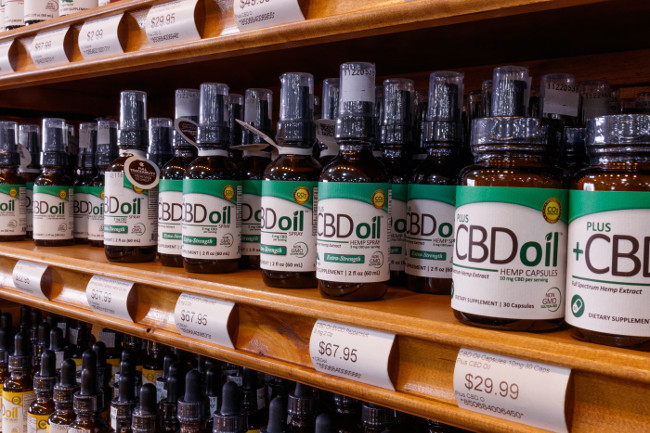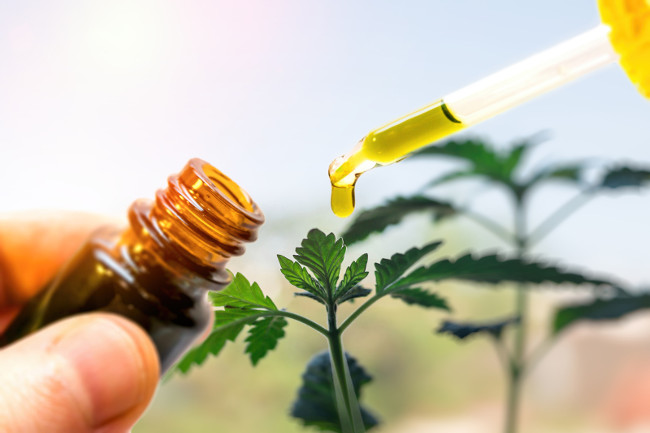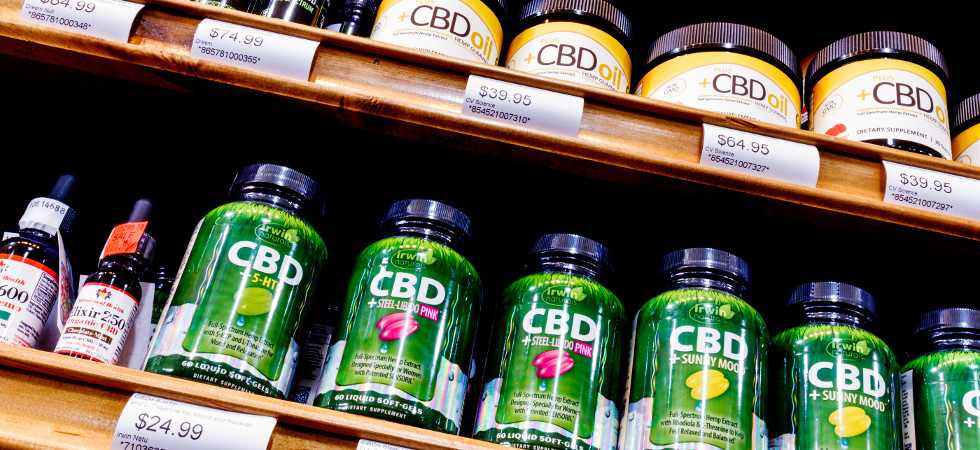Utter the word ‘cannabidiol’ a few years ago and you’d have been met with a sea of blank stares – but fast-forward to 2019, and it has fast become a household name. Known perhaps more commonly as CBD, this minor constituent of marijuana is widely touted as a miracle cure by enthusiasts – but is this popular natural remedy the magical potion it’s made out to be?
In 2018, the Government announced that it was relaxing laws on when cannabis medicines can be prescribed by doctors, and CBD oil – part of a new generation of cannabis medications – has shown great promise in treating a variety of ailments, ranging from anxiety and other mental health disorders to epilepsy, acne and various inflammatory conditions.
CBD does not contain THC – the psychoactive compound that is found in cannabis, and as such, is seen as a safer way to reap the benefits of this powerful plant. Natural and legal, with no major side effects noted so far, it’s little wonder it has been receiving such unrelenting attention, and CBD can now be found in everything from special skin creams to beers.
With a legion of celebrity fans behind it, its popularity continues to grow, with many turning to CBD to help them unwind after a long and stressful day. For others, it has become an essential part of pain management or for keeping conditions under control- and a non-negotiable part of everyday life.

Pain Relief
Marijuana has been used to treat pain as far back as 2900 B.C, and more recently, scientists have discovered that certain components – CBD included – are responsible for its pain-relieving effects.
The human body contains a specialised system called the endocannabinoid system which is involved in regulating a variety of functions including sleep, appetite, pain and immune system response. Studies have shown that CBD may help to reduce chronic pain by impacting the activity of such receptors, interacting with neurotransmitters and reducing inflammation.
One study in rats found that CBD injections reduced pain response to surgical incision, whilst another revealed that oral CBD treatment significantly reduced sciatic nerve pain and inflammation, and subsequent studies in humans have shown similar results.
Anxiety and depression reduction
Anxiety is becoming more and more prevalent thanks to today’s fast-paced, always-on way of life, and has a devastating effect for many on their enjoyment of life. In fact, according to the World Health Organization, depression is the single largest contributor to disability worldwide, while anxiety disorders are ranked sixth.
Usually treated with SSRIs, which can bring with them a raft of unwelcome side effects, it’s little wonder that many are seeking an alternative, and CBD oil has shown promising results in studies as a treatment for both anxiety and depression.
In one study, 24 people with social anxiety disorder received either 600 mg of CBD or a placebo before a public speaking test. The group that received the CBD had significantly less anxiety, cognitive impairment and discomfort in their speech performance, compared to the placebo group.
CBD has also shown antidepressant-like effects in several animal studies, as well as being safely used to treat anxiety linked insomnia in children suffering from PTSD.
Acne reduction
A common skin condition affecting numerous teenagers and young adults and causing untold distress, acne is thought to be caused by a number of factors including inflammation, bacteria and the overproduction of sebum.
Recent scientific studies have shown CBD oil to be effective in the treatment of acne, and it may help to treat it thanks to its anti-inflammatory properties.
Although these results are promising, studies have yet to be conducted on humans – and human studies are required before we can really know for sure.
If you’re interested in finding out more, then this site has expert info on CBD oil.

And the list goes on…
Although research on humans continues to be limited, CBD oil has been shown to effectively treat symptoms of neurological disorders including Parkinson’s disease and epilepsy, as well as reducing the progression of Alzheimer’s disease in test-tube and animal studies. There is hope that it might prove to be as effective in humans – but only time will tell.
CBD has also been linked with several benefits for the heart and circulatory system, including the ability to lower high blood pressure – which is linked to increased risk of a variety of health conditions including heart attacks and strokes.
Side effects
Unfortunately, though CBD looks to have far fewer side effects than more traditional medications for a number of conditions, it is not without its potential pitfalls, and users may suffer from adverse reactions including diarrhoea, fatigue and increased appetite – and is also know to interact with certain medicines.
The verdict
Knowing what we do about CBD so far, it’s unsurprising that this natural treatment is receiving such widespread acclaim – but until further studies have been conducted with humans, it’s advisable to proceed with care. If you’re thinking about giving it a try yourself, then be sure to discuss it with your doctor before taking the plunge.
Image at the very top of the article credit Jonathan Weiss/Bigstock.com.






















